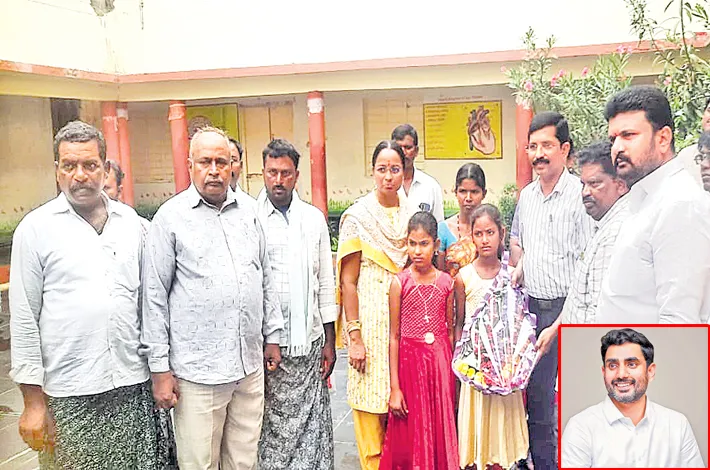From Cotton fields to Classroom
23-09-2025 12:00:00 AM

It reflects Lokesh’s long-standing emphasis on children’s education. During his padayatra, he once noticed a boy holding a party flag and told him gently, “You should be in school, not here,” sending him back to class.
Until just days ago, 11-year-old Jessie was working under the scorching sun in cotton fields alongside her parents. Born into a poor Dalit family in Buduru village of Mantralayam mandal, Kurnool district, Jessie’s dream of studying seemed distant. Having completed fifth grade, she was unable to secure admission in a government-run Kasturba Gandhi Balika Vidyalaya (KGBV) because all seats were filled. With no other option, her parents took her along to Telangana as a farm labourer.
Her story might have ended there, but a local newspaper report changed everything. The report, which featured Jessie’s candid wish, “If I get a seat, I want to study”, caught the attention of Andhra Pradesh Education and IT Minister Nara Lokesh. Deeply moved, Lokesh responded swiftly. “Chitti talli, study without worry. I will ensure your admission,” he assured the girl, promising action within 24 hours.
True to his word, Lokesh personally directed education authorities, including the Department of School Education, Samagra Shiksha officials, District Education Officer Samuel Paul, and Mandal Education Officer Raghanna, to take immediate steps. Within a day, Jessie was admitted into Class VI at the Chilakaladona KGBV.
On Monday, she walked into her new school, not with a basket for cotton, but with a bouquet of flowers presented by teachers who welcomed her with warmth. For Jessie, it was the start of a new life, one filled with books, classrooms, and the hope of a brighter future. Her parents, Meeniga Kumar and Santoshamma, expressed heartfelt gratitude to Minister Lokesh, calling the intervention a lifeline for their daughter.
This episode also reflects Lokesh’s long-standing emphasis on children’s education. During his padayatra, he once noticed a boy holding a party flag and told him gently, “You should be in school, not here,” sending him back to class.
For Lokesh, education is not merely a policy but a personal mission. “It is painful to see the hands that should hold pens working in fields. If you send your children to school, you bring honour to their mothers,” he remarked, urging parents across the state to prioritize education over labour.
Jessie’s story is more than an individual case, it underscores the government’s commitment to ensuring that no child is left behind. Lokesh highlighted that students enrolled in government schools are provided free uniforms, books, shoes, socks, belts, and nutritious meals cooked with fine rice. “Schools are the safest place for children, safeguarding their future,” he said.
As Jessie sat in her new classroom, smiling shyly at her teachers, her joy was evident. Only days earlier, she was bending over rows of cotton plants; today, she bends over notebooks. For her family, and for many like them, the transformation carries immense meaning.








